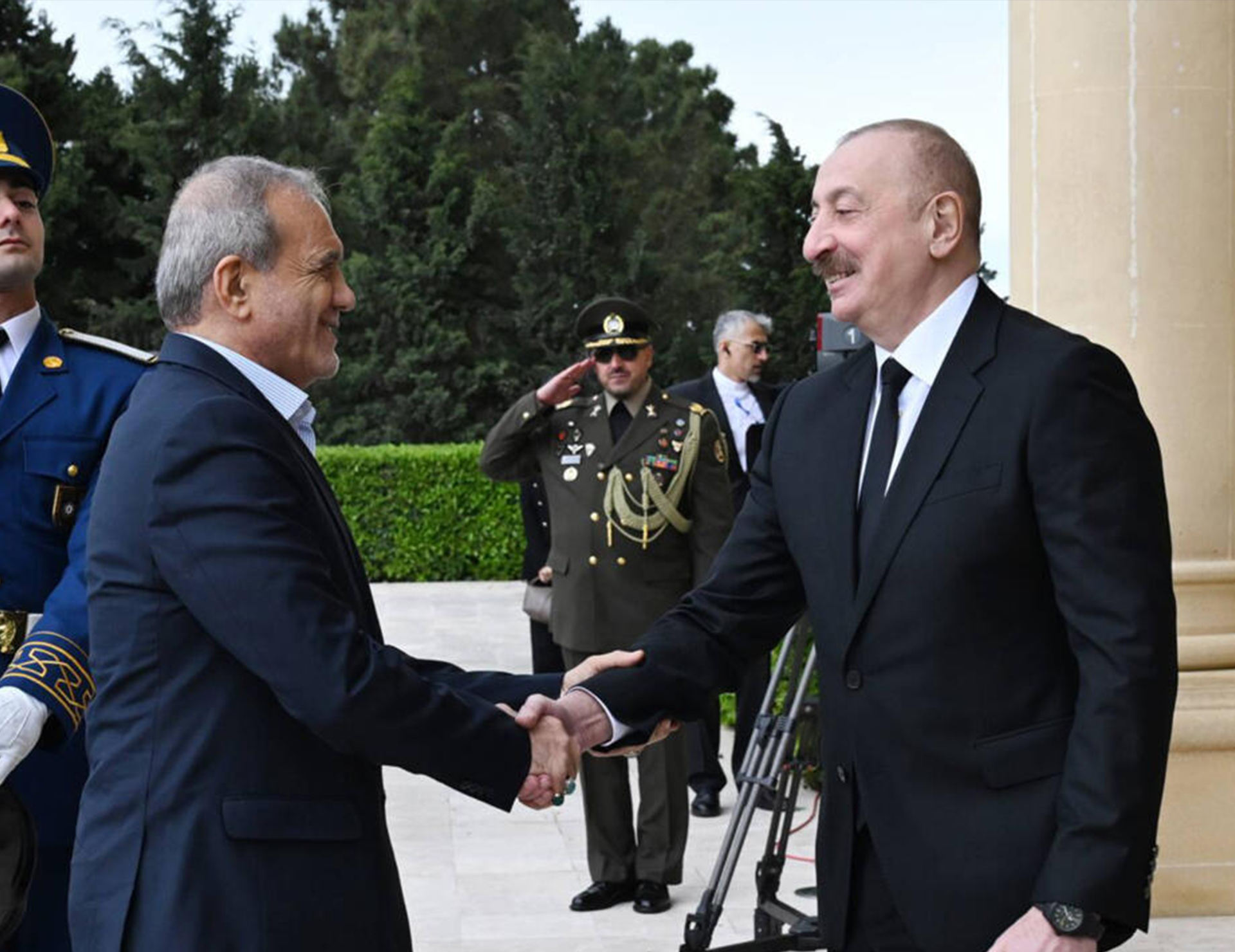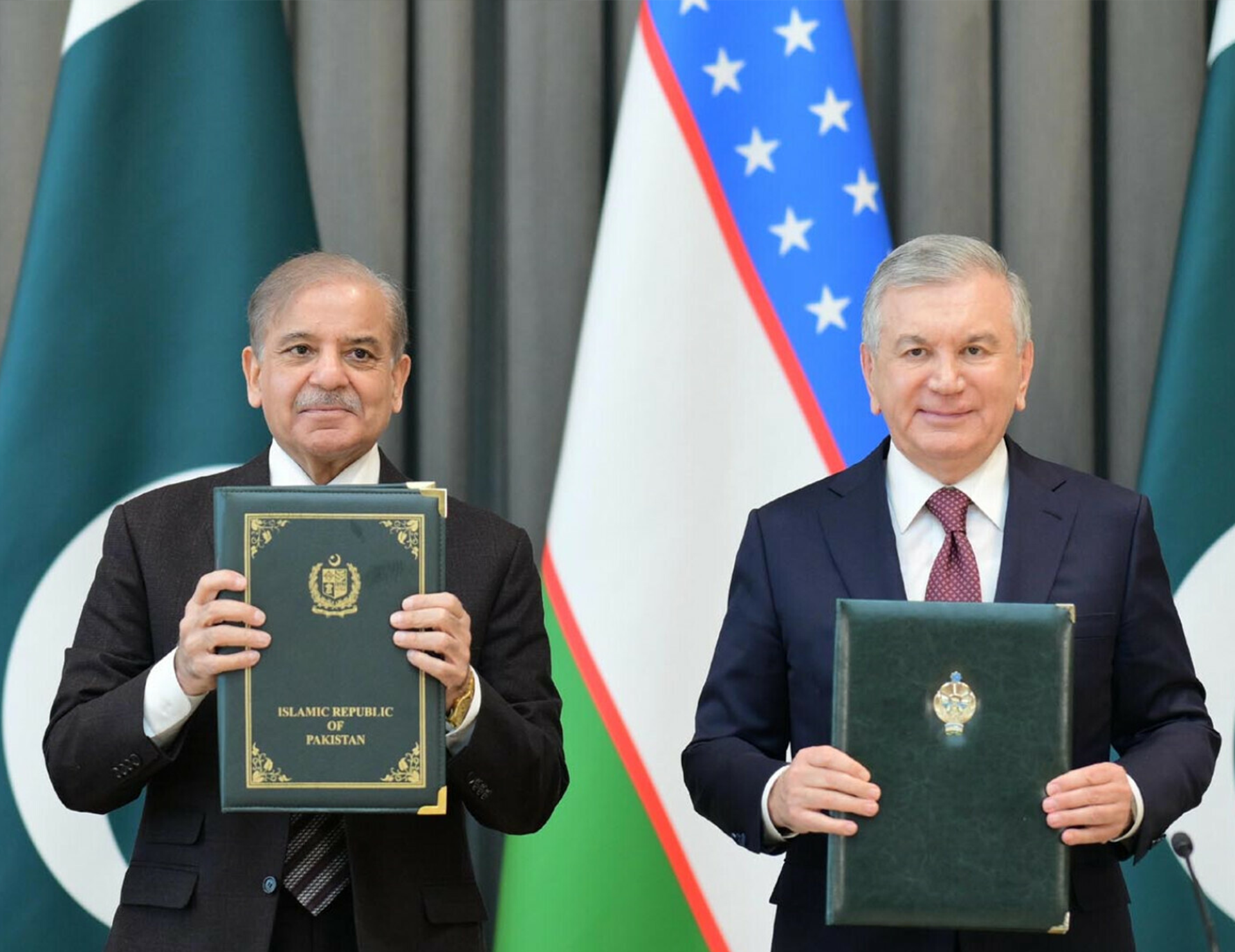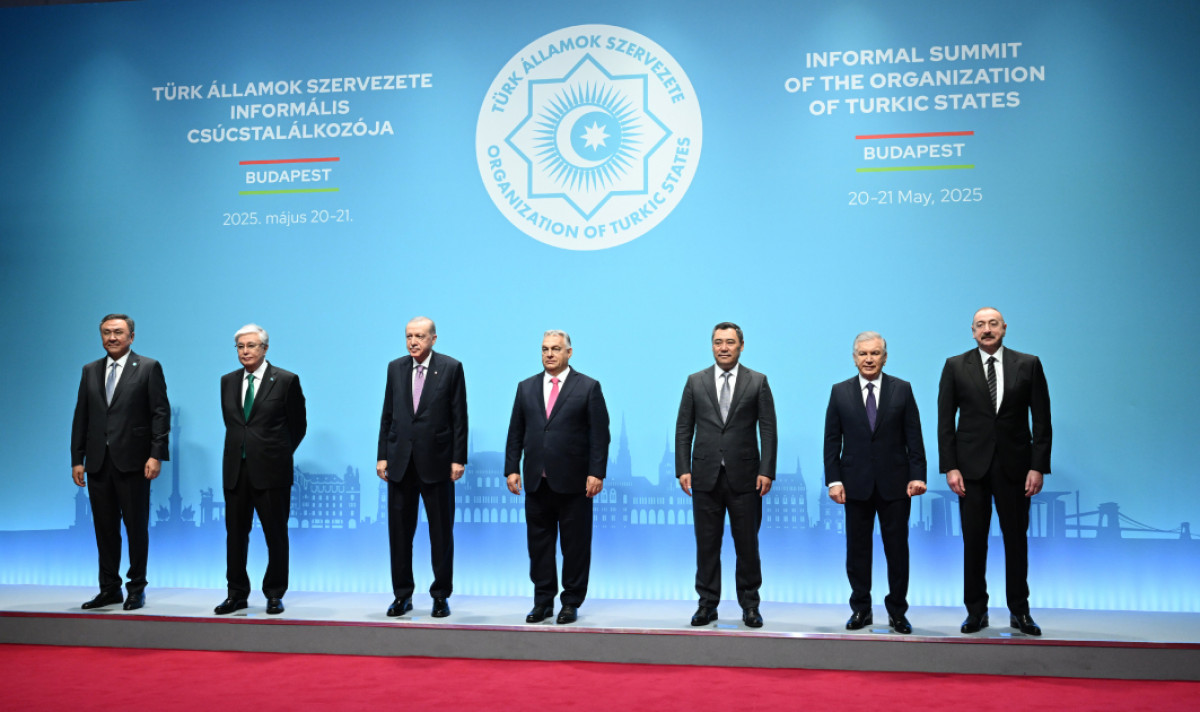The accelerating impact of climate change and Europe’s ongoing efforts to reduce dependence on Russian gas has heightened the global demand for renewable energy sources such as solar, wind and hydropower. In this context, cooperation with Azerbaijan and Türkiye in the field of green energy has become increasingly critical.
In this context, Azerbaijan and Türkiye have introduced a new dimension to their energy cooperation, aiming to address the adverse effects of escalating global climate change while aligning with evolving energy dynamics. Beyond their established collaboration in natural gas and oil, the two nations are expanding their partnership into electricity and green energy. Technical discussions are underway to facilitate the export of electricity generated from renewable energy sources not only to the Turkish domestic market but also to Europe via Türkiye.
Cooperation between Azerbaijan and Türkiye in the field of electrical energy dates back to the early 2000s. Azerbaijan began importing electrical energy from Türkiye in 2003, but these imports gradually decreased, reaching a minimum by 2006 and ceasing entirely in 2013. From 2006 onward, Azerbaijan shifted to exporting electrical energy to Türkiye.
The export and sale of energy in Türkiye, as well as to some European countries, are managed through Global Power, the Turkish subsidiary of Azerenerji ASC. This company facilitates the sale of Azerbaijani electrical energy to Türkiye and oversees energy exchanges with Türkiye, Bulgaria and Greece.
Since 2013, Azerbaijan has been exporting electrical energy to Türkiye as part of the “Azerbaijan-Georgia-Türkiye Energy Bridge Project.” Additionally, three aerial power lines connect Nakhchivan to Iğdır, further strengthening the energy link between Azerbaijan and Türkiye and ensuring a more robust and reliable electricity supply to the region.
Recent developments
In recent years, and particularly after the Karabakh victory, cooperation between Azerbaijan and Türkiye in the electricity sector has grown increasingly significant. Several factors have contributed to this enhanced cooperation. Firstly, the global shift toward renewable energy as part of the fight against climate change has intensified the focus on sustainable energy solutions. Secondly, Azerbaijan, despite being a leading producer of natural gas and oil, has embraced a strategic approach to developing renewable energy resources. Thirdly, the signing of a 2022 memorandum of strategic energy cooperation between Azerbaijan and the European Union highlighted renewable energy as a key area of partnership. Fourthly, Azerbaijan’s liberated territories have substantial renewable energy potential. Lastly, Azerbaijan has signed agreements with Kazakhstan and Uzbekistan to facilitate the transit of renewable electricity.
With its growing economy, expanding industrial base and increasing population, Türkiye’s electricity consumption has risen significantly in recent years. According to Energy and Natural Resources Minister Alparslan Bayraktar, the country’s electricity demand has tripled over the past 20 years and continues to grow at an average annual rate of 4.7%. Bayraktar emphasized Türkiye’s commitment to sourcing electricity from clean energy and noted that Azerbaijan, a country rich in renewable resources, is a key partner in this transition.
According to the Agreement on Cooperation in the Field of Energy and Mining signed between the two countries in Baku on Feb. 25, 2020, the parties will cooperate in the development and use of hydrocarbon resources, as well as exchange experience in the development of the organizational structure of transmission system operators in the field of electricity, technical cooperation in the construction, operation and maintenance of electricity transmission networks, development of electricity trade and interconnection capacity and exchange of information and experience in the field of electricity market regulation. A working group was established within the Ministry of Energy of Azerbaijan on Aug. 3, 2021, for the possibility of electricity exchange with Türkiye.
The shared objective of Azerbaijan and Türkiye is clear: to generate electricity from renewable sources. With its vast potential for renewable energy, Azerbaijan is well-positioned to achieve this goal. To accelerate this transition, President Ilham Aliyev established the Renewable Energy Resources State Agency under the Ministry of Energy on Sept. 22, 2020, just before Azerbaijan’s liberation of its occupied territories.
The agency aims to increase the share of renewable energy in Azerbaijan’s installed power capacity to 30% by 2030 and to transform the liberated regions into “Green Energy” zones. Close collaboration with the private sector has been integral to these efforts. Azerbaijan’s technical renewable energy potential is remarkable, with 135 GW onshore and 157 GW offshore.
To harness this potential, Azerbaijan has engaged in partnerships with numerous international companies since 2020, including Masdar, ACWA Power, BP, Fortescue Future Industries, China Gezhouba Group Overseas Investment, Total Energies, Nobel Energy, A-Z Czech Engineering and Baltech.
Gathering for the future
Speaking at the Wind Energy Hamburg Conference in September 2024, Azerbaijani Energy Minister Parviz Shahbazov highlighted that over 70% of Azerbaijan’s planned “green energy” capacity, which is expected to reach at least 7 GW by 2030, will be dedicated to exports. To facilitate this, a new energy supply map will be developed.
The Azerbaijan-Türkiye III Energy Forum, held in Nakhchivan on Sept. 29, 2023, was focused on establishing Nakhchivan as a “green energy region.” During the forum, discussions centered on creating a 1,500 MW renewable energy facility, combining wind and solar power, in Nakhchivan, with plans to export 1,000 MW of electricity to Türkiye.
Following the forum, Turkish Electricity Transmission Inc. (TEIAS) and AzerEnerji OJSC signed a road map to develop the necessary infrastructure for electricity import and export. A memorandum of understanding was also signed between the State Agency for Renewable Energy Resources under the Ministry of Energy of Azerbaijan and A-Z Czech Engineering LLC. This agreement focuses on establishing transmission lines to facilitate the export of wind and solar energy from Nakhchivan to Türkiye.
Speaking at the COP29 U.N. climate change conference in Baku in November 2024, Shahbazov announced that Azerbaijan and Türkiye will take further steps to enhance their cooperation in green energy. The two countries are engaged in discussions to develop joint projects aimed at supplying green energy from Azerbaijan to Türkiye and, from there, to Europe.
Additionally, a quadripartite meeting was held in November 2024 within the framework of the Istanbul Energy Forum, involving Türkiye, Georgia, Azerbaijan and Bulgaria. During this meeting, the role of the green energy corridor in helping the participating countries achieve their carbon emission reduction targets was discussed. The meeting also evaluated opportunities to increase interconnection capacities to strengthen energy supply security in the region.
Renewable energy corridor
Azerbaijan and Türkiye also conduct feasibility studies for a potential renewable energy corridor spanning both nations. As part of this initiative, a strategic energy corridor, including the Zangezur corridor, is planned from the Caspian Sea to Türkiye. The signing of the “Intergovernmental Agreement on the Strategic Partnership in the Development and Transmission of Green Energy” between Azerbaijan, Kazakhstan and Uzbekistan in the near future and the possibilities of connecting the Caspian, the Black Sea and Europe will strengthen the role of Azerbaijan and Turkiye in this field.
As a result, Azerbaijan and Türkiye are focusing on integrating green energy into their growing energy cooperation, adapting to the evolving energy landscape. This shift is driven by Azerbaijan’s strategy to explore and develop renewable energy resources, as well as Türkiye’s rising population, expanding economy, and growing electricity demand. The two countries are also working together to facilitate the transit of electricity generated from renewable sources to Europe.
Azerbaijan’s cooperation with Kazakhstan and Uzbekistan in this sector further opens up opportunities for enhanced cooperation in green energy across the Central Asia-Azerbaijan-Türkiye corridor, positioning the region as a key player in sustainable energy development.





